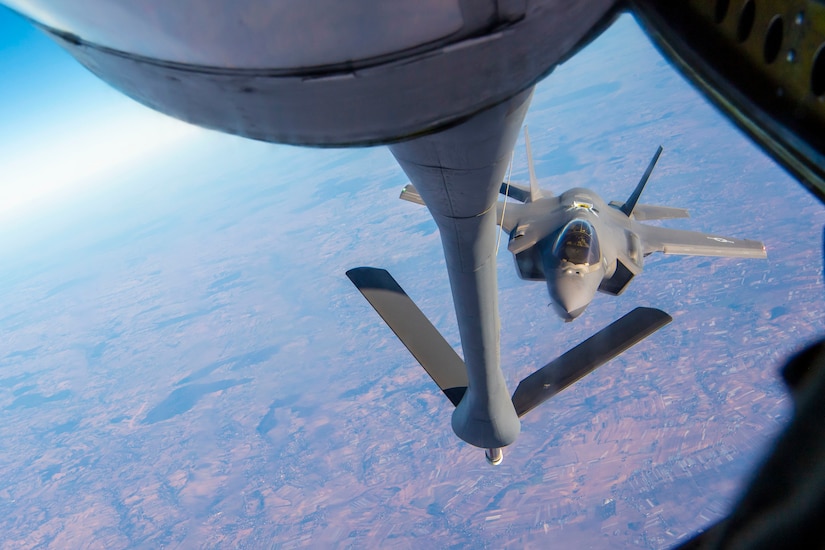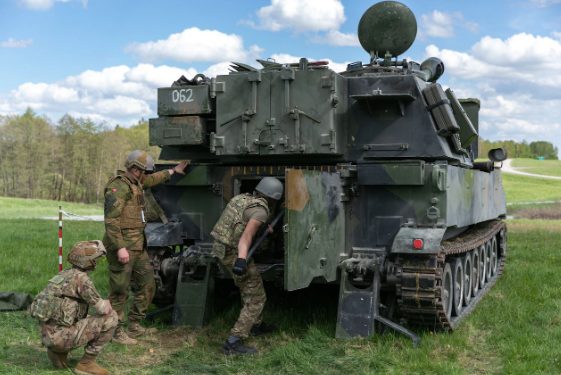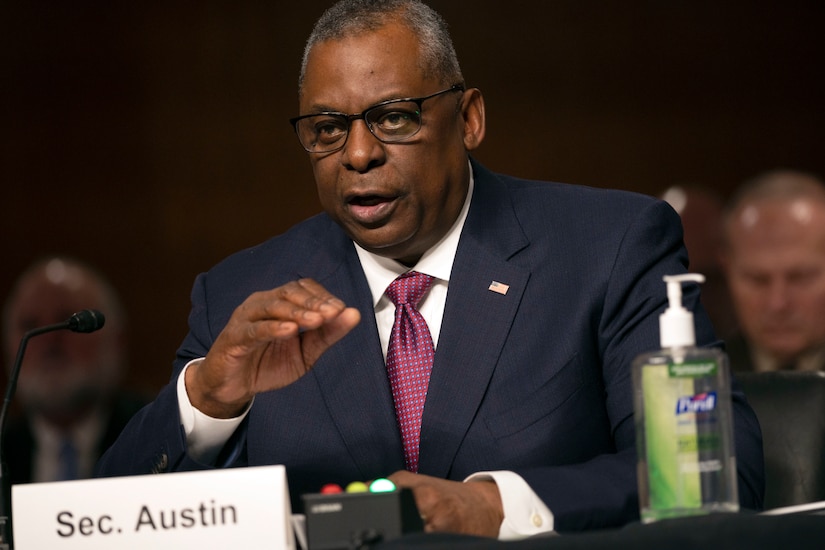…the act provides an increase of $198.5 million for partner capacity building through the International Security Cooperation Programs account within the Defense Security Cooperation Agency
President Joe Biden has signed the Fiscal 2023 National Defense Authorization Act into law allotting $816.7 billion to the Defense Department.
The act means a 4.6 percent pay raise for military and civilian members of the department, and includes $45 billion more than originally requested to counter the effects of inflation and to accelerate implementation of the National Defense Strategy.
The act also authorizes $30.3 billion for national security programs in the Department of Energy and the Defense Nuclear Facilities Safety Board and $378 million for other defense-related activities.
Although inflation has been dropping, the act authorizes $12.6 billion for inflation impacts on purchases. It also funds $3.8 billion more to account for inflation in military construction. It is a testament to the size of the agency that the act authorizes $2.5 billion for inflation impacts on DOD fuel purchases.
One of the more contentious items in the act is requiring the defense secretary to rescind the mandate that members of the armed forces be vaccinated against COVID-19. “The department will fully comply with the law,” DOD officials said. “DOD remains committed to the health and safety of the force and to ensuring we are ready to execute our mission at all times.”
Secretary of Defense Lloyd J. Austin III ordered the mandate on August 24, 2021. The COVID-19 vaccinations have been successful. Some 98 percent of active duty service members and 96 percent of the total force have been vaccinated. Since April, only two service members have died from COVID-19.
Austin argued that the mandate is necessary to protect military readiness, and he has been clear in his support for maintaining it. Still, Congress has spoken and the department will fully comply with the NDAA, officials said.
On the personnel side, the act authorizes additional funding to address the effects of inflation on compensation. It also puts in place language allowing more service members to qualify for the basic needs allowance by increasing the eligibility threshold and allowance size from 130 percent of the federal poverty line to 150 percent. The act authorizes the defense secretary to increase this benefit to 200 percent of the poverty line when appropriate.
 The act increases bonuses and special pay for service members in qualifying career fields. The act also looks to give recruiters a tool to revive and extend temporary authority for targeted recruitment incentives.
The act increases bonuses and special pay for service members in qualifying career fields. The act also looks to give recruiters a tool to revive and extend temporary authority for targeted recruitment incentives. DOD officials have said that roughly one-third of spouses must obtain new professional licenses every time they move to a new state. The act expands the scope of financial reimbursement related to spouse relicensing and business costs arising from a permanent change of station.
The act also calls for a pilot program to reimburse military families for certain child care costs related to a permanent change of station.
There are several changes in the act regarding housing. The act extends the authority to adjust the basic allowance for housing in high-cost areas. It encourages DOD to coordinate efforts to address housing shortages. The act also makes the assistant secretary of defense for energy, installations and environment the department’s chief housing officer.
There were no surprises on active duty end strength with the Army set at 452,000; the Navy at 354,000; the Air Force at 325,344; the Marine Corps set at 177,000 and the Space Force at 8,600.
Other aspects of the act include the authorization of special duty pay for members based on cold weather climate conditions in which their duties are performed. The act also starts a program to reimburse Alaska-based service members for the cost of airfare to travel to their homes of record.
The NDAA authorizes $32.6 billion for Navy shipbuilding, an increase of $4.7 billion. This will fund 11 battle force ships including three Arleigh Burke-class destroyers; two Virginia-class submarines; two expeditionary fast transports; one Constellation-class frigate; one San Antonio-class amphibious ship; one John Lewis-class oiler and one Navajo-class towing, salvage and rescue ship.

The act also calls for the Navy to build a third Arleigh Burke-class destroyer and allocates $2.2 billion to the effort.
The act funds eight F-18E/F aircraft, 16 F-35C aircraft, 15 F-35B jets and 12 CH-53K helicopters. The legislation also authorizes two more V-22 Osprey aircraft, seven E-2D Hawkeye aircraft and five KC-130J tanker aircraft. The act funds several unmanned aerial platforms including the Triton and Stingray systems.
The act authorizes the full fiscal year 2023 budget request for the European Deterrence Initiative and extends and modifies the Ukraine Security Assistance Initiative. It authorizes $800 million in fiscal year 2023, an increase of $500 million above the initial budget request.
More importantly, the act expresses the sense of Congress that the United States’ commitment to NATO is ironclad, and emphasizes the importance of maintaining a unified response to Russia’s unjust war in Ukraine and other shared security challenges, according to a release on the Senate Armed Services Committee website. The Senate release also stressed that the U.S. must continue to assist Ukraine in its fight against the unjust and unprovoked attack by Russia.
To that end, the act calls for an assessment of the required U.S. force posture and resourcing needed to implement the National Defense Strategy in Europe and uphold U.S. commitments to NATO.
Across the globe, the act extends the Pacific Deterrence Initiative through the fiscal year and identifies approximately $11.5 billion of investments in support of initiative objectives.
The U.S. military works alongside allies, partners and friends, and the act provides an increase of $198.5 million for partner capacity building through the International Security Cooperation Programs account within the Defense Security Cooperation Agency.

The NDAA also calls for an independent assessment of DOD efforts to train, advise, assist and equip the military forces of Somalia, and authorizes an increase of $10 million to support U.S. Africa Command‘s efforts to diversify the locations of its multilateral military exercises on the African continent.
The legislation extends the authority to assist Iraq to counter the Islamic State and provides monies to train Syrian allies against the terror group.
The act looks to provide long-term aid to Ukraine especially in waiving restrictions related to contracts for munitions to support Ukraine or to increase DOD’s stocks of critical munitions. It also provides multi-year procurement authority for certain munitions.
The act authorizes DOD to establish a Center for Security Studies in Irregular Warfare to serve as a central mechanism for developing irregular warfare knowledge. The center will be open to allies and partners.
Finally, the act fully funds the U.S. Special Operations Command’s budget including approximately $250 million for unfunded requirements identified by the Socom commander.
Department Of Defense News































